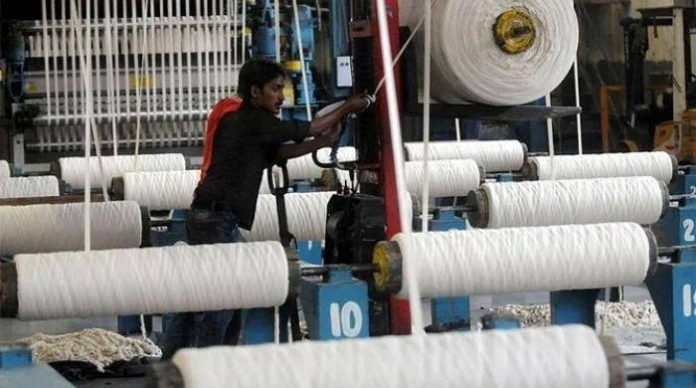Pakistani textile companies are currently experiencing a significant boost in export orders from international buyers. This surge is due to several factors affecting competing countries, such as rising costs and political instability in Bangladesh, as well as international restrictions placed on China. As a result, Pakistan’s textile industry is seeing an increase in demand, making it a more attractive option for global importers.
In August 2024, Pakistan’s textile exports reached a remarkable level of $1.64 billion, which is the highest in the past 26 months. This figure also represents a 13% increase compared to the same month last year.
This growth highlights the strength of Pakistan’s textile industry during challenging times, as it continues to adapt and find opportunities amidst global uncertainties.
Shagufta Irshad, a research analyst at JS Global Research, discussed this positive trend in her report titled “Textiles: Recovery in Cotton and Value-Added Product Prices.” She explained that the rising costs and political unrest in Bangladesh have led many global clothing importers to seek alternative suppliers.
Additionally, the international restrictions on China have further encouraged buyers to explore other markets. As a result, countries like Pakistan, India, and Vietnam are emerging as preferred options for international buyers looking for reliable suppliers of textile products.
Among the companies benefiting from this positive shift in the market is Interloop Limited (ILP), one of the prominent textile firms listed on the stock exchange. The company is expected to gain from the improvement in export prices, reduced input costs, and increased value-addition in its knitwear products, especially socks.
With higher export prices and lower costs for raw materials, Interloop is likely to see improved profit margins, which could strengthen its position in the market.
The increased demand for Pakistan’s textile products is not only benefiting larger companies like Interloop but also creating opportunities across the industry. Many textile firms are now focusing on improving the quality of their value-added products, such as knitwear, home textiles, and garments, to cater to the growing international demand.
This trend is expected to help Pakistani companies capture a larger share of the global market and boost the country’s overall textile exports.
The current political situation in Bangladesh, where rising costs and unrest are creating uncertainty, has shifted international buyers towards more stable suppliers like Pakistan.
Moreover, with China facing restrictions from various countries, many global brands are looking for new partners in the textile sector. Pakistan, with its skilled workforce and competitive pricing, is well-positioned to capitalize on this shift.
This surge in export orders provides a positive outlook for Pakistan’s textile sector, which has long been a key contributor to the country’s economy. The industry is not only gaining from increased demand but is also benefiting from reduced raw material costs, such as cotton, which have helped improve profitability for textile manufacturers.
Moving forward, the industry is likely to continue focusing on innovation, quality, and value-addition to strengthen its foothold in international markets and ensure sustainable growth.
The recovery in Pakistan’s textile exports reflects the resilience of the industry, which has faced various challenges, including rising energy costs and competition from other countries.
However, with growing international interest and favorable market conditions, the industry is showing signs of renewed strength. This growth is crucial not only for the businesses involved but also for the broader economy, as it helps generate employment and contribute to the country’s foreign exchange earnings.


